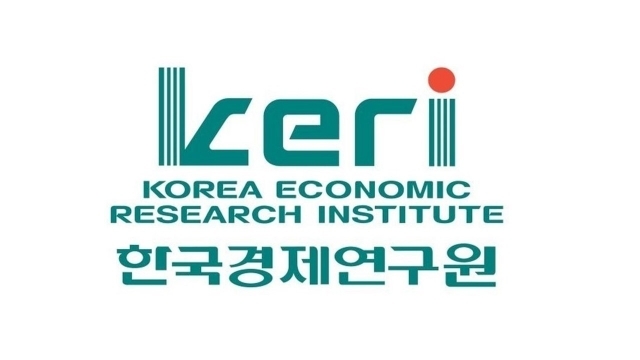Renters 65% less likely than homeowners to get married: study
By Choi Jae-heePublished : Oct. 21, 2020 - 15:49

South Koreans who rent their homes are less likely to get married and have children than those who own their own homes, a private think tank said Wednesday.
When people who paid monthly rent were compared with homeowners, the former were 65 percent less likely to tie the knot than the latter, according to the Korea Economic Research Institute, which is under the country’s top business lobby, the Federation of Korean Industries.
For people who have “jeonse” apartment leases, the probability of marriage was down 23.4 percent compared with homeowners, it added. Korea’s unique jeonse system involves a rent-free housing lease, where tenants pay landlords a returnable lump-sum deposit to live in a property for a number of years.
Also, tenants paying monthly rent are 55.7 percent less likely to become first-time parents than homeowners. For jeonse renters, the probability is 28.9 percent lower. However, when researchers looked at their chances of having a second child, housing conditions had limited effects.
The figures indicate that unstable housing conditions are pushing people to delay starting families, which may be accelerating the country’s so-called “demographic cliff” -- a drop in the working-age population caused by low birthrates -- the KERI said.
In 2019, Asia’s fourth-largest economy’s total fertility rate -- the average number of children a woman is expected to have during her lifetime -- plunged to 0.92, the lowest figure among Organization of Economic Cooperation and Development countries, whose average stands at 1.63.
“Amid the shrinking population trend, extra government measures are needed to expand housing supply so that low and middle-income households could live in their own houses,” said Yoo Jin-seong, a researcher at KERI.
The authorities should place greater emphasis on housing supply rather than excessive regulations, considering their side effects, he added.
In late July, the government’s tenant protection legislation passed in the National Assembly, allowing tenants to unilaterally extend a two-year jeonse deal for another two years. As many landlords withdrew their jeonse offers from the real estate market following its passage, the number of jeonse transactions has dropped sharply, further raising apartment prices.
By Choi Jae-hee (cjh@heraldcorp.com)
When people who paid monthly rent were compared with homeowners, the former were 65 percent less likely to tie the knot than the latter, according to the Korea Economic Research Institute, which is under the country’s top business lobby, the Federation of Korean Industries.
For people who have “jeonse” apartment leases, the probability of marriage was down 23.4 percent compared with homeowners, it added. Korea’s unique jeonse system involves a rent-free housing lease, where tenants pay landlords a returnable lump-sum deposit to live in a property for a number of years.
Also, tenants paying monthly rent are 55.7 percent less likely to become first-time parents than homeowners. For jeonse renters, the probability is 28.9 percent lower. However, when researchers looked at their chances of having a second child, housing conditions had limited effects.
The figures indicate that unstable housing conditions are pushing people to delay starting families, which may be accelerating the country’s so-called “demographic cliff” -- a drop in the working-age population caused by low birthrates -- the KERI said.
In 2019, Asia’s fourth-largest economy’s total fertility rate -- the average number of children a woman is expected to have during her lifetime -- plunged to 0.92, the lowest figure among Organization of Economic Cooperation and Development countries, whose average stands at 1.63.
“Amid the shrinking population trend, extra government measures are needed to expand housing supply so that low and middle-income households could live in their own houses,” said Yoo Jin-seong, a researcher at KERI.
The authorities should place greater emphasis on housing supply rather than excessive regulations, considering their side effects, he added.
In late July, the government’s tenant protection legislation passed in the National Assembly, allowing tenants to unilaterally extend a two-year jeonse deal for another two years. As many landlords withdrew their jeonse offers from the real estate market following its passage, the number of jeonse transactions has dropped sharply, further raising apartment prices.
By Choi Jae-hee (cjh@heraldcorp.com)





![[From the Scene] Monks, Buddhists hail return of remains of Buddhas](http://res.heraldm.com/phpwas/restmb_idxmake.php?idx=644&simg=/content/image/2024/04/19/20240419050617_0.jpg&u=20240419175937)





![[Graphic News] French bulldog most popular breed in US, Maltese most popular in Korea](http://res.heraldm.com/phpwas/restmb_idxmake.php?idx=644&simg=/content/image/2024/04/18/20240418050864_0.gif&u=)



![[From the Scene] Monks, Buddhists hail return of remains of Buddhas](http://res.heraldm.com/phpwas/restmb_idxmake.php?idx=652&simg=/content/image/2024/04/19/20240419050617_0.jpg&u=20240419175937)

![[KH Explains] Hyundai's full hybrid edge to pay off amid slow transition to pure EVs](http://res.heraldm.com/phpwas/restmb_idxmake.php?idx=652&simg=/content/image/2024/04/18/20240418050645_0.jpg&u=20240419100350)

![[Today’s K-pop] Illit drops debut single remix](http://res.heraldm.com/phpwas/restmb_idxmake.php?idx=642&simg=/content/image/2024/04/19/20240419050612_0.jpg&u=)